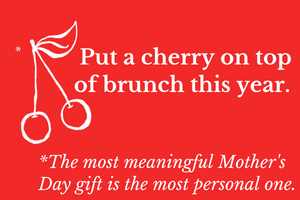From what I’ve seen, the biggest confusion is upon what love really means: everyone has his own variant and understands what he wants out of love.
I’m sure you have it too—your own experiences define what love means to you. That’s why I wanted to find a complete definition that could be applied universally. I even made a mini-inquest in search for people’s definition of love. Some of the definitions were incomplete, other just superficial. But the one that got my attention was the following:
“Love is one of the reasons for the existence of a couple, along with physical attraction and friendship. The moment the couple reaches its maturity, love becomes power of will.”
It is not a philosophical definition at all. It is the definition of someone just like you!
I see this definition as complete, because it includes all the essential traits: love is based on continuous trust and self-disclosure (as in friendship), it has a sexual component (physical attraction) and, obviously, it’s characterized by the predominant affective level (it’s the feeling that unites people).
But I chose this definition: reaching a relational maturity, love converts itself in power of will. In Spanish language, there is a verb having an affective and also a volitional meaning, “querer”: I love you and I want to love you.
Love is now seen as more than just a mere sentiment, it involves the power of our will.
It embodies the absolute definition. Love isn’t just a feeling, it isn’t euphoria—it also incorporates the decision to continuously love the same person. This component makes something divine out of love. And, in the same time, it makes it accessible: we could choose to love the same person for a lifetime.
From an anthropologic point of view, the most accepted definition is that of Aristotle: “To love is to want the best for the other.” It is a very human and altruistic definition: to get out of yourself and give yourself to the other. And, more than that, it is a confirming definition: I don’t love the other for the way he makes me feel, but for who he is. I don’t love the other for the advantages that I get, but for what I could offer him/her.
And here we could see the importance of all spheres of love. You love because you want to. To feel is not to love. The authors of the book “Fundamentos de Antropología: Un Ideal de la Excelencia Humana” say that the feeling that accompanies love can be called affection. But more than affection, love has effects: it manifests itself through acts, oeuvres and actions that testify also its existence in the willingness.
Affection is the feeling, action is the will.
The thing that characterizes me the most is that I love to be surrounded by beauty. I like to find beauty in everything: people, things, places. I see beauty as a way and as an art of living. I enjoy being creative with words, clothes and food. I admire expression through beauty: harmony in gestures, elegance in movement and fervor in dance. I have this unruly curiosity to seek and to encounter. It is the greatest thing to set yourself free, being inspired by the people you meet in your life journey.
The project that I’m really found of is www.loverevolution.ro. Here is where my passion for art and my creativity meet. Regarding questions or concerns, you can find me at [email protected].
Editor: Anne Clendening
“Like” elephant love on Facebook!






Read 3 comments and reply